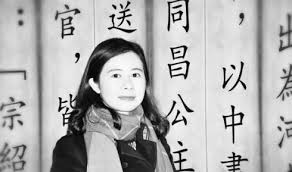Dichter
Feng Na

Feng Na
(China, 1985)
Biografie
Feng Na 冯娜, an ethnic Bai, writes about transit, migration, yearning, the great fight for recognition, and the pain of its denial. Born in 1985, in Lijiang, Yunnan Province, she is a graduate of Sun Yat-sen University, and is a member of the China Writer's Association. Her poetry collections include Chosen Night, Numberless Lights, and Searching for Cranes; she is also a magazine columnist. Her poems have been translated into English, Russian, and Korean and she is the recipient of numerous awards in China including the Huawen Youth Prize, the China Ethnic Literature Society Annual Prize, and a nomination for the Pushcart Prize.
Like a fable or something
Other people are like me
they want to know its whereabouts
like standing at the exit
searching for this story’s entrance.
One possible reading of Feng’s fable might be that the poem represents China’s post-reform journey from one of the world’s poorest and most egalitarian countries to one of its richest and most unequal, where some folks are willing to do anything to prosper – even pollute the commons. But another reading might stress how the purloined ashes, the uncertainty of the three “likes” of the final stanza, and the multiple trapdoors that Feng has built into the poem, hint at the surplus meaning that escapes even the most airtight analyses.
Bai is one of the ethnic “minority” groups in southwest China with its own language but Feng Na writes in standard Chinese like most ethnic writers in China today. She writes about her ethnic identities but at the same time avoids being stereotyped.
© Henry Zhang
Gedichten
Gedichten van Feng Na
Sponsors












Partners
LantarenVenster – Verhalenhuis Belvédère

